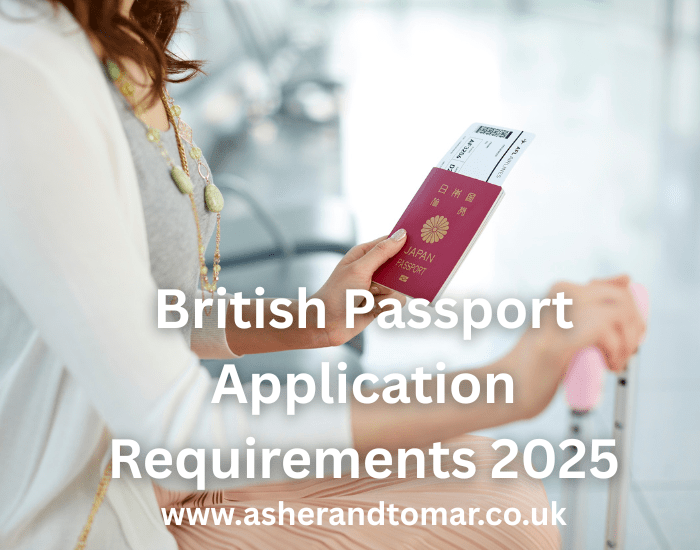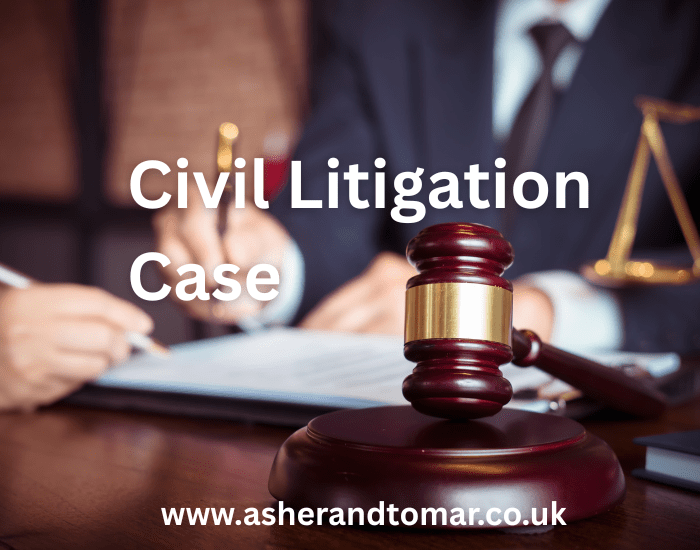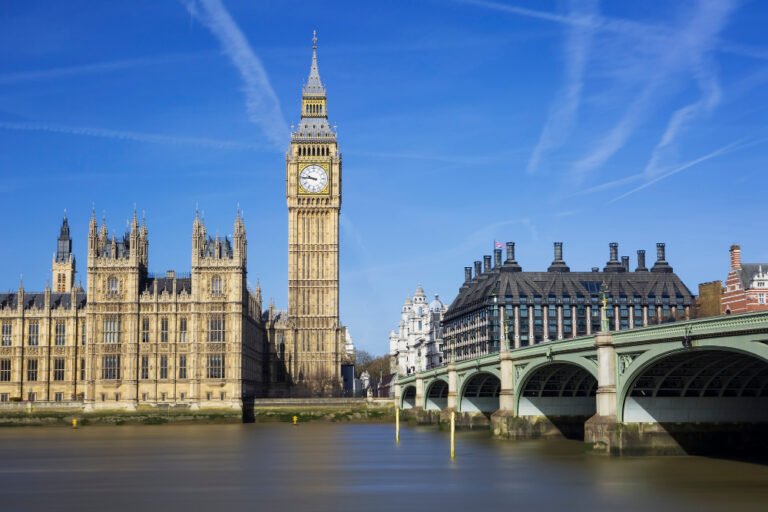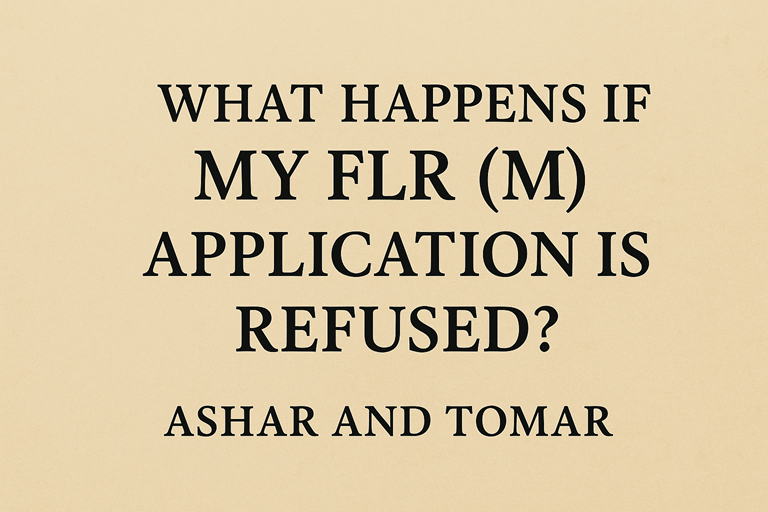UK Spouse Visa (5 Years Route)
A spouse is a partner in a marriage, civil union, domestic partnership or common-law marriage.
UK Spouse Visa (At present 29000.00)
Eligibility or Requirements.
a) Your spouse with settled status in the UK must be 18 years of age or over.
b) Under the proposed changes Brits who want to marry a non-EU citizen will have to be earning at least £18,600 a year if they want to bring their spouse to live with them in the UK. In cases where the foreign-born spouse has children, their British partner would have to earn £22,400 or more, plus £2,400 for each additional children.
c) You and your spouse must have met each other and you must be legally married.
d) You and your spouse must intend to live together on a permanent basis.
Evidence of Financial Requirements under Appendix FM
A1. To meet the financial requirement under paragraphs E-ECP.3.1., E-LTRP.3.1., E-ECC.2.1. and E-LTRC.2.1. of Appendix FM, the applicant must meet:
(a) The level of financial requirement applicable to the application under Appendix FM; and
(b) The requirements specified in Appendix FM and this Appendix as to:
(i) The permitted sources of income and savings;
(ii) The time periods and permitted combinations of sources applicable to each permitted source relied upon; and
(iii) The evidence required for each permitted source relied upon.
1. In relation to evidencing the financial requirements in Appendix FM the following general provisions shall apply:
(a) Bank statements must:
(i) be from a financial institution regulated by the appropriate regulatory body for the country in which that institution is operating.
(ii) not be from a financial institution on the list of excluded institutions in Appendix P of these rules.
(iii) in relation to personal bank statements be only in the name of:
(1) the applicant’s partner, the applicant or both as appropriate; or
(2) if the applicant is a child the applicant parent’s partner, the applicant’s parent or both as appropriate; or
(3) if the applicant is an adult dependent relative, the applicant’s sponsor or the applicant, unless otherwise stated.
(iv) cover the period(s) specified.
(v) be:
(1) on official bank stationery; or
(2) electronic bank statements from an online account (defined as one that operates solely over the internet and sends bank statements to its customers electronically) which are either accompanied by a letter from the bank on its headed stationery confirming that the documents are authentic or which bear the official stamp of the issuing bank on every page.
(aa) Where a bank statement is specified in this Appendix, a building society statement, a building society pass book, a letter from the applicant’s bank or building society, or a letter from a financial institution regulated by the Financial Services Authority or, for overseas accounts, the appropriate regulatory body for the country in which the institution operates and the funds are located, may be submitted as an alternative to a bank statement(s) provided that:
(1) the requirements in paragraph 1(a)(i)-(iv) are met as if the document were a bank statement; and
(2) a building society pass book must clearly show:
(i) the account number;
(ii) the building society’s name and logo; and
(iii) the information required on transactions, funds held and time period(s) or as otherwise specified in this Appendix in relation to bank statements; and/or
(3) a letter must be on the headed stationery of the bank, building society or other financial institution and must clearly show:
(i) the account number,
(ii) the date of the letter;
(iii) the financial institution’s name and logo; and
(iv) the information required on transactions, funds held and time period(s) or as otherwise specified in this Appendix in relation to bank statements.
(b) Promises of third party support will not be accepted. Third party support will only be accepted in the form of:
(i) maintenance payments from a former partner of an applicant in relation to the applicant and former partner’s child or children or in relation to the applicant;
(ii) income from a dependent child who has turned 18, remains in the same UK household as the applicant and continues to be counted towards the financial requirement under Appendix FM;
(iii) gift of cash savings (whose source must be declared) evidenced at paragraph 1(a)(iii), provided that the cash savings have been held by the person or persons at paragraph 1(a)(iii) for at least 6 months prior to the date of application and are under their control; and
(iv) a maintenance grant or stipend associated with undergraduate study or postgraduate study or research.
(bb) Wage slips must be:
(i) on company-headed paper; or
(ii) stamped and signed by the employer; or
(iii) accompanied by a letter from the employer, on company-headed paper and signed by a senior manager, confirming that they are authentic.
(c) The employment income of an applicant will only be taken into account if they are in the UK, aged 18 years or over and working legally, and prospective employment income will not be taken into account (except that of an applicant’s partner or parent’s partner who is returning to employment or self-employment in the UK at paragraphs E-ECP.3.2.(a) and E-ECC.2.2.(a) of Appendix FM).
(d) All income and savings must be lawfully derived.
(e) Savings must be held in cash.
(f) Income or cash savings in a foreign currency will be converted to pounds sterling using the closing spot exchange rate which appears on www.oanda.com* on the date of application.
(g) Where there is income or cash savings in different foreign currencies, each will be converted into pounds sterling before being added together, and then added to any UK income or savings to give a total amount.
(h) All documentary evidence must be original, unless otherwise stated.
(i) Evidence of profit from the sale of a business, property, investment, bond, stocks, shares or other asset will:
(i) not be accepted as evidence of income, but
(ii) the associated funds will be accepted as cash savings subject to the requirements of this Appendix and Appendix FM.
(j) Where a document is not in English or Welsh, the original must be accompanied by a certified translation by a professional translator. This translation must include details of the translator’s credentials and confirmation that it is an accurate translation of the original document. It must also be dated and include the original signature of the translator.
(k) Where the gross (pre-tax) amount of any income cannot be properly evidenced, the net (post-tax) amount will be counted, including towards a gross income requirement.
(l) Where this Appendix requires the applicant to provide specified evidence relating to a period which ends with the date of application, that evidence, or the most recently dated part of it, must be dated no earlier than 28 days before the date of application.
2. In respect of salaried employment in the UK, all of the following evidence must be provided:
(a) Wage slips covering:
(i) a period of 6 months prior to the date of application if the applicant has been employed by their current employer for at least 6 months (and where paragraph 13(b) of this Appendix does not apply); or
(ii) any period of salaried employment in the period of 12 months prior to the date of application if the applicant has been employed by their current employer for less than 6 months (or at least 6 months but the person does not rely on paragraph 13(a) of this Appendix), or in the financial year(s) relied upon by a self-employed person.
(b) A letter from the employer(s) who issued the wage slips at paragraph 2(a) confirming:
(i) the person’s employment and gross annual salary;
(ii) the length of their employment;
(iii) the period over which they have been or were paid the level of salary relied upon in the application; and
(iv) the type of employment (permanent, fixed-term contract or agency).
(c) Personal bank statements corresponding to the same period(s) as the wage slips at paragraph 2(a), showing that the salary has been paid into an account in the name of the person or in the name of the person and their partner jointly.
2A. (i) In respect of salaried employment in the UK (paragraph 2 of this Appendix), statutory or contractual maternity, paternity, adoption or sick pay in the UK (paragraph 5 or 6 of this Appendix), or a director’s salary paid to a self-employed person (paragraph 9 of this Appendix), the applicant may, in addition to the wage slips and personal bank statements required under that paragraph, submit the P60 for the relevant period(s) of employment relied upon (if issued). If they do not, the Entry Clearance Officer or Secretary of State may grant the application if otherwise satisfied that the requirements of this Appendix relating to that employment are met. The Entry Clearance Officer or Secretary of State may request that the applicant submit the document(s) in accordance with paragraph D of this Appendix.
(ii) In respect of salaried employment in the UK (paragraph 2 of this Appendix), or statutory or contractual maternity, paternity, adoption or sick pay in the UK (paragraph 5 or 6 of this Appendix), the applicant may, in addition to the letter from the employer(s) required under that paragraph, submit a signed contract of employment. If they do not, the Entry Clearance Officer or Secretary of State may grant the application if otherwise satisfied that the requirements of this Appendix relating to that employment are met. The Entry Clearance Officer or Secretary of State may request that the applicant submit the document(s) in accordance with paragraph D of this Appendix.
3. In respect of salaried employment outside of the UK, evidence should be a reasonable equivalent to that set out in paragraph 2.
4. In respect of a job offer in the UK (for an applicant’s partner or parent’s partner returning to salaried employment in the UK at paragraphs E-ECP.3.2.(a) and E-ECC.2.2.(a) of Appendix FM) a letter from the employer must be provided:
(a) confirming the job offer, the gross annual salary and the starting date of the employment which must be within 3 months of the applicant’s partner’s return to the UK; or
(b) enclosing a signed contract of employment, which must have a starting date within 3 months of the applicant’s partner’s return to the UK.
5. In respect of statutory or contractual maternity, paternity or adoption pay in the UK all of the following must be provided:
(a) Personal bank statements corresponding to the same period(s) as the wage slips at paragraph 5(b), showing that the salary has been paid into an account in the name of the person or in the name of the person and their partner jointly.
(b) Wage slips covering:
(i) a period of 6 months prior to the commencement of the maternity, paternity or adoption leave, if the applicant has been employed by their current employer for at least 6 months; or
(ii) any period of salaried employment in the period of 12 months prior to the commencement of the maternity, paternity or adoption leave, if the applicant has been employed by their current employer for less than 6 months.
(c) A letter from the employer confirming:
(i) the length of the person’s employment;
(ii) the gross annual salary and the period over which it has been paid at this level;
(iii) the entitlement to maternity, paternity or adoption leave; and
(iv) the date of commencement and the end-date of the maternity, paternity or adoption leave.
6. In respect of statutory or contractual sick pay in the UK all of the following must be provided:
(a) Personal bank statements corresponding to the same period(s) as the wage slips at paragraph 6(b), showing that the salary has been paid into an account in the name of the person or in the name of the person and their partner jointly.
(b) Wage slips covering:
(i) a period of 6 months prior to the commencement of the sick leave, if the applicant has been employed by their current employer for at least 6 months; or,
(ii) any period of salaried employment in the period of 12 months prior to the commencement of the sick leave, if the applicant has been employed by their current employer for less than 6 months.
(c) A letter from employer confirming:
(i) the length of the person’s employment;
(ii) the gross annual salary and the period over which it has been paid at this level;
(iii) that the person is in receipt of statutory or contractual sick pay; and
(iv) the date of commencement of the sick leave.
7. In respect of self-employment in the UK as a partner, as a sole trader or in a franchise all of the following must be provided:
(a) Evidence of the amount of tax payable, paid and unpaid for the last financial year.
(b) The latest:
(i) annual self-assessment tax return to HMRC (a copy or print-out);
(ii) Statement of Account (SA300 or SA302); and,
(iii) the same for the previous financial year if the latest return does not show the necessary level of gross income, but the average of the last 2 financial years does.
(c) Proof of registration with HMRC as self-employed if available.
(d) Each partner’s Unique Tax Reference Number (UTR) and/or the UTR of the partnership or business.
(e) Where the person holds or held a separate business bank account(s), bank statements for the same 12-month period as the tax return(s).
(f) personal bank statements for the same 12-month period as the tax return(s) showing that the income from self-employment has been paid into an account in the name of the person or in the name of the person and their partner jointly.
(g) Evidence of ongoing self-employment through:
(i) evidence of payment of Class 2 National Insurance contributions (for self-employed persons); or,
(ii) current Appointment Reports from Companies House (for Directors).
(h) One of the following documents must also be submitted:
(i) (aa) If the applicant’s business is a registered company that is required to produce annual audited accounts, the latest such accounts; or
(bb) If the applicant’s business is not required to produce annual audited accounts, the latest unaudited accounts and an accountant’s certificate of confirmation, from an accountant who is a member of a UK Recognised Supervisory Body (as defined in the Companies Act 2006);
(ii) A certificate of VAT registration and the latest VAT return (a copy or print-out) confirming the VAT registration number, if turnover is in excess of £73,000;
(iii) Evidence to show appropriate planning permission or local planning authority consent is held to operate the type/class of business at the trading address (where this is a local authority requirement); or
(iv) A franchise agreement signed by both parties.
(i) The document referred to in paragraph 7(h)(iv) must be provided if the organisation is a franchise.
8. In respect of self-employment outside of the UK, evidence should be a reasonable equivalent to that set out in paragraph 7.
9. In respect of self-employment in a limited company based in the UK all of the following must be provided:
(a) Where the self-employed person is listed as a director of the company and draws a salary from the gross profits of the company:
(i) wage slips covering the same period as the Company Tax Return CT600; and
(ii) evidence of payment of PAYE and Class 1 National Insurance contributions where applicable covering the same period as the Company Tax Return CT600, where this evidence is available at the date of application.
(b) Evidence of registration with the Registrar of Companies at Companies House.
(c) Company Tax Return – CT600 (a copy or print-out) and evidence this has been filed with HMRC, such as an electronic acknowledgment from HMRC.
(d) (i) If the applicant’s business is a registered company that is required to produce annual audited accounts, the latest such accounts; or
(ii) If the applicant’s business is not required to produce annual audited accounts, the latest unaudited accounts and an accountant’s certificate of confirmation, from an accountant who is a member of a UK Recognised Supervisory Body (as defined in the Companies Act 2006).
(e) corporate/business bank statements covering the same 12-month period as the tax return(s).
(f) personal bank statements covering the same 12-month period as the tax return(s) showing that the income from self-employment has been paid into an account in the name of the person or in the name of the person and their partner jointly.
(g) Evidence of ongoing self-employment through:
(i) evidence of payment of Class 2 National Insurance contributions (for self-employed persons); or,
(ii) current Appointment Reports from Companies House (for Directors),
(h) One of the following documents must also be provided:
(i) A certificate of VAT registration and the latest VAT return (a copy or print-out) confirming the VAT registration number, if turnover is in excess of £73,000.
(ii) Proof of ownership or lease of business premises.
(iii) Original proof of registration with HMRC as an employer for the purposes of PAYE and National Insurance, proof of PAYE reference number and Accounts Office reference number. This evidence may be in the form of a certified copy of the documentation issued by HMRC.
(iv) Proof of registration with the London Stock Exchange or with an international stock exchange approved by the Financial Services Authority in the UK.
(i) The document referred to in paragraph 9(h)(iv) must be provided for a company registered on the London Stock Exchange or an FSA-approved international stock exchange.
10. In respect of non-employment income all the following evidence, in relation to the form of income relied upon, must be provided:
(a) To evidence property rental income:
(i) Confirmation that the person or the person and their partner jointly own the property for which the rental income is received, through:
(1) A copy of the title deeds of the property or of the title register from the Land Registry (or overseas equivalent);
(2) A mortgage statement.
(ii) personal bank statements for the 12-month period prior to the date of application showing the rental income was paid into an account in the name of the person or of the person and their partner jointly.
(iii) A rental agreement or contract.
(b) To evidence dividends or other income from investments, stocks, shares, bonds or trust funds:
(i) A certificate showing proof of ownership and the amount(s) of any investment(s).
(ii) A portfolio report (for a financial institution regulated by the Financial Services Authority in the UK).
(iii) personal bank statements for the 12-month period prior to the date of application showing that the income relied upon was paid into an account in the name of the person or of the person and their partner jointly.
(c) To evidence interest from savings:
(i) personal bank statements for the 12-month period prior to the date of application showing the amount of the savings held and that the interest was paid into an account in the name of the person or of the person and their partner jointly.
(d) To evidence maintenance payments (from a former partner to maintain their and the applicant’s child or children or the applicant):
(i) Evidence of a maintenance agreement through any of the following:
(1) A court order;
(2) Written voluntary agreement; or
(3) Child Support Agency documentation.
(ii) personal bank statements for the 12-month period prior to the date of application showing the income relied upon was paid into an account in the name of the applicant.
(e) To evidence a pension:
(i) Official documentation from:
(1) The Department for Work and Pensions (in respect of the Basic State Pension and the Additional or Second State Pension);
(2) An overseas pension authority; or
(3) A pension company,
confirming pension entitlement and amount.
(ii) At least one personal bank statement in the 12-month period prior to the date of application showing payment of the pension into the person’s account.
(f) To evidence UK Maternity Allowance, Bereavement Allowance, Bereavement Payment and Widowed Parent’s Allowance:
(i) Department for Work and Pensions documentation confirming the person or their partner is or was in receipt of the benefit in the 12-month period prior to the date of application.
(ii) personal bank statements for the 12-month period prior to the date of application showing the income was paid into the person’s account.
(g) To evidence a maintenance grant or stipend (not a loan) associated with undergraduate study or postgraduate study or research:
(i) Documentation from the body or company awarding the grant or stipend confirming that the person is currently in receipt of the grant or stipend or will be within 3 months of the date of application, confirming that the grant or stipend will be paid for a period of at least 12 months from the date of application or from the date on which payment of the grant or stipend will commence, and confirming the annual amount of the grant or stipend.
(ii) personal bank statements for any part of the 12-month period prior to the date of the application during which the person has been in receipt of the grant or stipend showing the income was paid into the person’s account.
11. In respect of cash savings the following must be provided:
(a) personal bank statements showing the cash savings have been held in an account in the name of the person or of the person and their partner jointly for at least 6 months prior to the date of application.
(b) A declaration by the account holder(s) of the source(s) of the cash savings.
11A. In respect of cash savings:
(a) The savings may be held in any form of bank/savings account, provided that the account allows the savings to be accessed immediately (with or without a penalty for withdrawing funds without notice). This can include, for those of retirement age, savings held in a pension savings account which can be immediately withdrawn.
(b) Paid out competition winnings or a legacy which has been paid can contribute to cash savings.
12. Where the applicant’s partner is in receipt of Carer’s Allowance, Disability Living Allowance, Severe Disablement Allowance, Industrial Injuries Disablement Benefit or Attendance Allowance, all the following must be provided:
(a) Official documentation from the Department for Work and Pensions confirming the entitlement and the amount received.
(b) At least one personal bank statement in the 12-month period prior to the date of application. Showing payment of the benefit or allowance into the person’s account.
12A. Where the financial requirement the applicant must meet under Appendix FM relates to adequate maintenance, paragraphs 2 to 12 apply only to the extent and in the manner specified by this paragraph. Where such a financial requirement applies, the applicant must provide the following evidence:
(a) Where the current salaried employment in the UK of the applicant or their partner, parent, parent’s partner or sponsor is relied upon:
(i) A letter from the employer confirming the employment, the gross annual salary and the annual salary after income tax and National Insurance contributions have been paid, how long the employment has been held, and the type of employment (permanent, fixed-term contract or agency).
(ii) Wage slips covering the period of 6 months prior to the date of application or such shorter period as the current employment has been held.
(iii) personal bank statement covering the same period as the wage slips, showing that the salary has been paid into an account in the name of the person or in the name of the person and their partner jointly.
(b) Where statutory or contractual maternity, paternity, adoption or sick pay in the UK of the applicant or their partner, parent, parent’s partner or sponsor are relied upon, paragraph 5(b)(i) and (c) or paragraph 6(b)(i) and (c) apply as appropriate.
(c) Where self-employment in the UK of the applicant or their partner, parent, parent’s partner or sponsor is relied upon, paragraph 7 or 9 applies as appropriate.
(d) Where the non-employment income of the applicant or their partner, parent, parent’s partner or sponsor is relied upon, paragraph 10 applies and paragraph 10(f) shall apply as if it referred to any UK welfare benefit or tax credit relied upon and to HMRC as well as Department for Work and Pensions documentation.
(e) Where the cash savings of the applicant or their partner, parent, parent’s partner or sponsor are relied upon, paragraphs 11 and 11A apply.
(f) The monthly housing and Council Tax costs for the accommodation in the UK in which the applicant (and any other family members who are or will be part of the same household) lives or will live if the application is granted.
(g) Where the applicant is an adult dependent relative applying for entry clearance, the applicant must in addition provide details of the care arrangements in the UK planned for them by their sponsor (which can involve other family members in the UK), of the cost of these arrangements and of how that cost will be met by the sponsor.
Calculating Gross Annual Income under Appendix FM
13. Based on evidence that meets the requirements of this Appendix, and can be taken into account with reference to the applicable provisions of Appendix FM, gross annual income under paragraphs E-ECP.3.1., E-LTRP.3.1., E-ECC.2.1. and E-LTRC.2.1. will be calculated in the following ways:
(a) Where the person is in salaried employment in the UK at the date of application and has been employed by their current employer for at least 6 months, their gross annual income will be (where paragraph 13(b) does not apply) the total of:
(i) The gross annual salary from their employment as it was at its lowest level in the 6 months prior to the date of application;
(ii) The gross amount of any specified non-employment income (other than pension income) received by them or their partner in the 12 months prior to the date of application; and
(iii) The gross annual income from a UK or foreign State pension or a private pension received by them or their partner.
(b) Where the person is in salaried employment in the UK at the date of application and has been employed by their current employer for less than 6 months (or at least 6 months but the person does not rely on paragraph 13(a)), their gross annual income will be the total of:
(i) The gross annual salary from employment as it was at the date of application;
(ii) The gross amount of any specified non-employment income (other than pension income) received by them or their partner in the 12 months prior to the date of application; and
(iii) The gross annual income from a UK or foreign State pension or a private pension received by them or their partner.
In addition, the requirements of paragraph 15 must be met.
(c) Where the person is the applicant’s partner, is in salaried employment outside of the UK at the date of application, has been employed by their current employer for at least 6 months, and is returning to the UK to take up salaried employment in the UK starting within 3 months of their return, the person’s gross annual income will be calculated:
(i) On the basis set out in paragraph 13(a); and also
(ii) On that basis but substituting for the gross annual salary at paragraph 13(a)(i) the gross annual salary in the salaried employment in the UK to which they are returning.
(d) Where the person is the applicant’s partner, has been in salaried employment outside of the UK within 12 months of the date of application, and is returning to the UK to take up salaried employment in the UK starting within 3 months of their return, the person’s gross annual income will be calculated:
(i) On the basis set out in paragraph 13(a) but substituting for the gross annual salary at paragraph 13(a)(i) the gross annual salary in the salaried employment in the UK to which they are returning; and also
(ii) On the basis set out in paragraph 15(b).
(e) Where the person is self-employed, their gross annual income will be the total of their gross income from their self-employment, from any salaried employment they have had, from specified non-employment income received by them or their partner, and from income from a UK or foreign State pension or a private pension received by them or their partner, in the last full financial year or as an average of the last two full financial years. The requirements of this Appendix for specified evidence relating to these forms of income shall apply as if references to the date of application were references to the end of the relevant financial year(s).
(f) Where the person is self-employed, they cannot combine their gross annual income at paragraph 13(e) with specified savings in order to meet the level of income required under Appendix FM.
(g) Where the person is not relying on income from salaried employment or self-employment, their gross annual income will be the total of:
(i) The gross amount of any specified non-employment income (other than pension income) received by them or their partner in the 12 months prior to the date of application; and
(ii) The gross annual income from a UK or foreign State pension or a private pension received by them or their partner.
14. Where the requirements of this Appendix and Appendix FM are met by the combined income or cash savings of more than one person, the income or the cash savings must only be counted once unless stated otherwise.
15. In respect of paragraph 13(b) and paragraph 13(d), the provisions in this paragraph also apply:
(a) In order to evidence the level of gross annual income required by Appendix FM, the person must meet the requirements in paragraph 13(b) or paragraph 13(d)(i); and
(b) The person must also meet the level of gross annual income required by Appendix FM on the basis that their income is the total of:
(i) The gross income from salaried employment earned by the person in the 12 months prior to the date of application;
(ii) The gross amount of any specified non-employment income (other than pension income) received by the person or their partner in the 12 months prior to the date of application;
(iii) The gross amount received from a UK or foreign State pension or a private pension by the person or their partner in the 12 months prior to the date of application; and
(iv)The person cannot combine the gross annual income at paragraph 15(b)(i)-(iii) with specified savings in order to meet the level of income required.
16. Where a person is in receipt of maternity, paternity, adoption or sick pay, this paragraph applies:
(a) the relevant date for considering the length of employment with their current employer will be the date that the maternity, paternity, adoption or sick leave commenced and not the date of application; and
(b) the relevant period for calculating income from their salaried employment will be the period prior to the commencement of the maternity, paternity, adoption or sick pay and not the date of application.
17. If a person is an equity partner, for example in a law firm, the income they draw from the partnership will be treated as salaried employment for the purposes of this Appendix and Appendix FM.
18. When calculating income from salaried employment under paragraphs 12A and 13 to 16, this paragraph applies:
(a) Basic pay, skills-based allowances, and UK location-based allowances will be counted as income provided that:
(i) They are contractual; and
(ii) Where these allowances make up more than 30% of the total salary, only the amount up to 30% is counted.
(b) Overtime, commission-based pay and bonuses will be counted as income.
(c) UK and overseas travel, subsistence and accommodation allowances, and allowances relating to the cost of living overseas will not be counted as income.
(d) Gross income from employment income paid at an hourly rate will be counted on the same basis as income from salaried employment and the requirements of this Appendix for specified evidence relating to salaried employment shall apply as if references to salary were references to income from employment paid at an hourly rate.
19. When calculating income from self-employment under paragraphs 12A and 13(e) this paragraph applies:
(a) There must be evidence of ongoing self-employment at the date of application.
(b) Where the self-employed person is a sole trader or is in a partnership or franchise agreement, the income will be:
(i) the gross taxable profits from their share of the business; and
(ii) allowances or deductable expenses which are not taxed will not be counted towards income.
(c) Where the self-employed person has set up their own registered company and is listed as a director of that company, the income that can be counted will be any salary drawn from the gross profits of the company and any income drawn from the post-tax profits of the company.
(d) Where self-employment income is being used to meet the financial requirement for an initial application for leave to remain as a partner under Appendix FM by an applicant who used such income to meet that requirement in an application for entry clearance as a fiancé(e) or proposed civil partner under that Appendix in the last 12 months, the Secretary of State may continue to accept the same level and evidence of self-employment income that was accepted in granting the application for entry clearance, provided that there is evidence of ongoing self-employment at the date of the application for leave to remain.
20. When calculating income from specified non-employment sources under paragraphs 12A and 13 to 15, this paragraph applies:
(a) Assets or savings must be in the name of the person, or jointly with their partner.
(b) Any asset or savings on which income is based must be held or owned by the person at the date of application.
(c) Any rental income from property, in the UK or overseas, must be from a property that is:
(i) owned by the person;
(ii) not their main residence; and
(iii) if ownership of the property is shared with a third party, only income received from their share of the property can be counted.
(cc) The amount of rental income from property received before any management fee was deducted may be counted.
(d) Equity in a property cannot be used to meet the financial requirement.
20A. When calculating the gross annual income from pension under paragraph 13, the gross annual amount of any pension received may be counted where the pension has become a source of income at least 28 days prior to the date of application.
21. When calculating income under paragraphs 13 to 16, the following sources will not be counted:
(a) Loans and credit facilities.
(b) Income-related benefits: Income Support, income-related Employment and Support Allowance, Pension Credit, Housing Benefit, Council Tax Benefit and income-based Jobseeker’s Allowance.
(c) The following contributory benefits: contribution-based Jobseeker’s Allowance, contribution-based Employment and Support Allowance and Incapacity Benefit.
(d) Child Benefit.
(e) Working Tax Credit.
(f) Child Tax Credit.
(g) Any other source of income not specified in this appendix.
Evidence of Marriage or Civil Partnerships
22. A claim to have been married in the United Kingdom must be evidenced by a marriage certificate.
23. A claim to be divorced in the United Kingdom must be evidenced by a decree absolute from a civil court.
24. A civil partnership in the United Kingdom must be evidenced by a civil partnership certificate.
25. The dissolution of a civil partnership in the UK must be evidenced by a final order of civil partnership dissolution from a civil court.
26. Marriages, civil partnerships or evidence of divorce or dissolution from outside the UK must be evidenced by a reasonable equivalent to the evidence detailed in paragraphs 22 to 25, valid under the law in force in the relevant country.
Evidence of English Language Requirements
27. Evidence of passing an English language test in speaking and listening must take the form of either:
(a) a certificate that:
(i) is from an English language test provider approved by the Secretary of State for these purposes as specified in Appendix O of these rules
(ii) is a test approved by the Secretary of State for these purposes as specified in Appendix O of these rules
(iii) shows the applicant’s name;
(iv) shows the qualification obtained (which must meet or exceed level A1 of the Common European Framework of Reference); and,
(v) shows the date of award.
Or,
(b) a print out of the online score from a PTE (Pearson) test which:
(i) is a test approved by the Secretary of State for these purposes as specified in Appendix O of these rules;
(ii) can be used to show that the qualification obtained (which must meet or exceed level A1 of the Common European Framework of Reference); and,
(iii) is from an English language test provider approved by the Secretary of State for these purposes as specified in Appendix O of these rules
28. The evidence required to show that a person is a citizen or national of a majority English speaking country is a valid passport or travel document, unless paragraphs 29 and 30 apply. A dual national may invoke either of their nationalities.
29. If the applicant has not provided their passport or travel document other evidence of nationality can be supplied in the following circumstances only (as indicated by the applicant on their application form):
(a) where the passport has been lost or stolen;
(b) where the passport has expired and been returned to the relevant authorities; or
(c) where the passport is with another part of the UK Border Agency.
30. Alternative evidence as proof of nationality, if acceptable, must be either:
(a) A current national identity document; or
(b) An original letter from the applicant’s Home Government or Embassy confirming the applicant’s full name, date of birth and nationality.
31. Evidence of an academic qualification (recognised by NARIC UK to be equivalent to the standard of a Bachelor’s or Master’s degree or PhD in the UK) and was taught in English must be either:
(a) A certificate issued by the relevant institution confirming the award of the academic qualification showing:
(i) the applicant’s name;
(ii) the title of award;
(iii) the date of award;
(iv) the name of the awarding institution; and,
(v) that the qualification was taught in English
Or,
(b) If the applicant is awaiting graduation or no longer has the certificate and cannot get a new one, the evidence must be:
(i) an original academic reference from the institution awarding the academic qualification that;
(1) is on official letter headed paper;
(2) shows the applicant’s name;
(3) shows the title of award;
(4) confirms that the qualification was taught in English;
(5) explains when the academic qualification has been, or will be awarded; and
(6) states either the date that the certificate will be issued (if the applicant has not yet graduated) or confirms that the institution is unable to re-issue the original certificate of award.
or
(ii) an original academic transcript that
(1) is on official letter headed paper
(2) shows the applicant’s name;
(3) the name of the academic institution;
(4) the course title;
(5) confirms that the qualification was taught in English; and,
(6) provides confirmation of the award.
32. If the qualification was taken in one of the following countries, it will be assumed for the purpose of paragraph 31 that it was taught in English: Antigua and Barbuda, Australia, the Bahamas, Barbados, Belize, Dominica, Grenada, Guyana, Ireland, Jamaica, New Zealand, St Kitts and Nevis, St Lucia, St Vincent and the Grenadines, Trinidad and Tobago, the UK, the USA.
Adult dependent relatives
33. Evidence of the family relationship between the applicant(s) and the sponsor should take the form of birth or adoption certificates, or other documentary evidence.
34. Evidence that, as a result of age, illness or disability, the applicant requires long-term personal care should take the form of:
(a) Medical evidence that the applicant’s physical or mental condition means that they cannot perform everyday tasks; and
(b) This must be from a doctor or other health professional.
35. Evidence that the applicant is unable, even with the practical and financial help of the sponsor in the UK, to obtain the required level of care in the country where they are living should be from:
(a) a central or local health authority;
(b) a local authority; or
(c) a doctor or other health professional.
36. If the applicant’s required care has previously been provided through a private arrangement, the applicant must provide details of that arrangement and why it is no longer available.
37. If the applicant’s required level of care is not, or is no longer, affordable because payment previously made for arranging this care is no longer being made, the applicant must provide records of that payment and an explanation of why that payment cannot continue. If financial support has been provided by the sponsor or other close family in the UK, the applicant must provide an explanation of why this cannot continue or is no longer sufficient to enable the required level of care to be provided.
So for professional and sympathetic advise kindly feel free to contact our Immigration Solicitors.
Useful links for UK Spouse VISA’s
Family visas – GOV.UK
Changes to legal migration rules for family and work visas in 2024
Getting visas for your partner and children to live in the UK
UK Spouse Visa – FAQ
Answer: A UK Spouse Visa allows a non-UK citizen to live in the UK with their husband, wife, or civil partner who is a British citizen or has Indefinite Leave to Remain (ILR). It’s part of the UK Family Visa route and is usually granted for **2 years and 6 months** initially.
Answer: You can apply for a UK Spouse Visa if you are legally married or in a civil partnership with a **British citizen, UK-settled person, or refugee**. You must prove your relationship is genuine, meet the **financial requirement**, and have a suitable place to live in the UK.
Answer: As of 2025, the sponsoring partner must earn a minimum of £29,000 per year or show equivalent savings. Additional funds are required if you’re sponsoring dependent children. You can combine income from employment, self-employment, or savings.
Answer: Most UK Spouse Visa applications take 8 to 12 weeks** when applied from outside the UK. If you apply from inside the UK, it can take around 8 weeks. Priority services are available for faster processing.
Answer:If you apply **outside the UK, the visa fee is £1,846*.
If you apply inside the UK, the fee is £1,048*.
You must also pay the Immigration Health Surcharge (IHS), which is £1,035 per year.
Answer: Below Given documents are required :
* Passport and partner’s UK status proof
* Marriage or civil partnership certificate
* Proof of genuine relationship (photos, chats, calls, etc.)
* Financial evidence (payslips, bank statements)
* English language test certificate
* Proof of accommodation in the UK
Answer:Yes, you can **work full-time, start a business, or study** in the UK without restrictions while on a Spouse Visa.
Answer:If your application is refused, the Home Office will provide reasons in writing. You can either appeal the decision, request an administrative review, or submit a new application after addressing the issues.
Answer:You can apply to **extend your UK Spouse Visa** after 2 years and 6 months if your relationship is still genuine and you meet the financial and accommodation requirements. After 5 years, you may apply for **Indefinite Leave to Remain (ILR)**.
Answer:You can apply to **extend your UK Spouse Visa** after 2 years and 6 months if your relationship is still genuine and you meet the financial and accommodation requirements. After 5 years, you may apply for **Indefinite Leave to Remain (ILR)**.
for a UK Spouse Visa?
To qualify for a UK Spouse Visa, you must be married to or in a civil partnership with a British citizen or a person settled in the UK. You’ll need to prove:
- A genuine and subsisting relationship,
- A minimum income of £18,600 per year,
- Suitable accommodation, and
- English language ability at level A1 or above.
At Asher & Tomar Solicitors, we help you prepare strong evidence and complete your application accurately to maximize your chances of approval.
Read More Article>>>
How to Apply for a UK Spouse Visa








